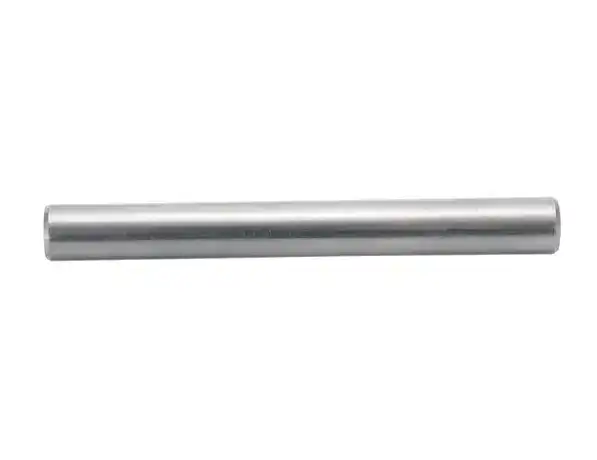Guidelines for Safe and Responsible Disposal of Automotive Parts and Components
Nov . 17, 2024 07:46
How to Dispose of Automotive Parts Responsibly
When it comes to car maintenance and repair, many vehicle owners often overlook the proper disposal of discarded automotive parts. However, responsible disposal is crucial for environmental protection and compliance with local regulations. Here’s how to do it effectively.
Firstly, it's important to understand that automotive parts can be classified into several categories, including oil, batteries, tires, and various metal and plastic components
. Each type requires specific disposal methods to minimize environmental impact.
1. Used Motor Oil Used motor oil is considered hazardous waste. Never dispose of it by pouring it down the drain or on the ground. Instead, collect the oil in a sealed container and take it to a recycling center or an auto parts store that accepts used oil. Many places offer this service for free.
2. Batteries Automotive batteries contain lead and acid, making them dangerous to throw in regular trash. Return used batteries to a retailer that sells them; they are often required to accept them for recycling. Additionally, many recycling centers specialize in battery recycling and will ensure that the materials are handled safely.
how to dispose of automotive parts
3. Tires Tires are another component that requires careful disposal due to their bulk and environmental concerns. Do not discard tires in landfills; instead, look for local tire recycling programs or facilities that can repurpose them. Many auto service centers also offer tire disposal as part of their service.
4. Metal Parts Metals from automotive parts are highly recyclable. Collect scrap metal components and take them to a scrap yard, where they can be processed and turned into new products. Not only does this help the environment, but you may also receive payment for your scrap.
5. Plastics and Glass Car parts often contain plastics and glass, which can be recycled. Check local recycling guidelines for specific instructions on how to recycle these materials. Some auto parts shops may also accept them.
In addition to these options, consider donating usable parts to local charities or organizations that accept automotive donations. This way, you can help someone in need while ensuring the parts don’t end up in a landfill.
In conclusion, disposing of automotive parts responsibly is essential for environmental health. By following the correct procedures for recycling and disposal, you not only comply with local laws but also contribute positively to your community and the environment. Always check with local regulations and facilities to ensure you are making the best choices.
 Afrikaans
Afrikaans  Albanian
Albanian  Amharic
Amharic  Arabic
Arabic  Armenian
Armenian  Azerbaijani
Azerbaijani  Basque
Basque  Belarusian
Belarusian  Bengali
Bengali  Bosnian
Bosnian  Bulgarian
Bulgarian  Catalan
Catalan  Cebuano
Cebuano  Corsican
Corsican  Croatian
Croatian  Czech
Czech  Danish
Danish  Dutch
Dutch  English
English  Esperanto
Esperanto  Estonian
Estonian  Finnish
Finnish  French
French  Frisian
Frisian  Galician
Galician  Georgian
Georgian  German
German  Greek
Greek  Gujarati
Gujarati  Haitian Creole
Haitian Creole  hausa
hausa  hawaiian
hawaiian  Hebrew
Hebrew  Hindi
Hindi  Miao
Miao  Hungarian
Hungarian  Icelandic
Icelandic  igbo
igbo  Indonesian
Indonesian  irish
irish  Italian
Italian  Japanese
Japanese  Javanese
Javanese  Kannada
Kannada  kazakh
kazakh  Khmer
Khmer  Rwandese
Rwandese  Korean
Korean  Kurdish
Kurdish  Kyrgyz
Kyrgyz  Lao
Lao  Latin
Latin  Latvian
Latvian  Lithuanian
Lithuanian  Luxembourgish
Luxembourgish  Macedonian
Macedonian  Malgashi
Malgashi  Malay
Malay  Malayalam
Malayalam  Maltese
Maltese  Maori
Maori  Marathi
Marathi  Mongolian
Mongolian  Myanmar
Myanmar  Nepali
Nepali  Norwegian
Norwegian  Norwegian
Norwegian  Occitan
Occitan  Pashto
Pashto  Persian
Persian  Polish
Polish  Portuguese
Portuguese  Punjabi
Punjabi  Romanian
Romanian  Samoan
Samoan  Scottish Gaelic
Scottish Gaelic  Serbian
Serbian  Sesotho
Sesotho  Shona
Shona  Sindhi
Sindhi  Sinhala
Sinhala  Slovak
Slovak  Slovenian
Slovenian  Somali
Somali  Spanish
Spanish  Sundanese
Sundanese  Swahili
Swahili  Swedish
Swedish  Tagalog
Tagalog  Tajik
Tajik  Tamil
Tamil  Tatar
Tatar  Telugu
Telugu  Thai
Thai  Turkish
Turkish  Turkmen
Turkmen  Ukrainian
Ukrainian  Urdu
Urdu  Uighur
Uighur  Uzbek
Uzbek  Vietnamese
Vietnamese  Welsh
Welsh  Bantu
Bantu  Yiddish
Yiddish  Yoruba
Yoruba  Zulu
Zulu 












